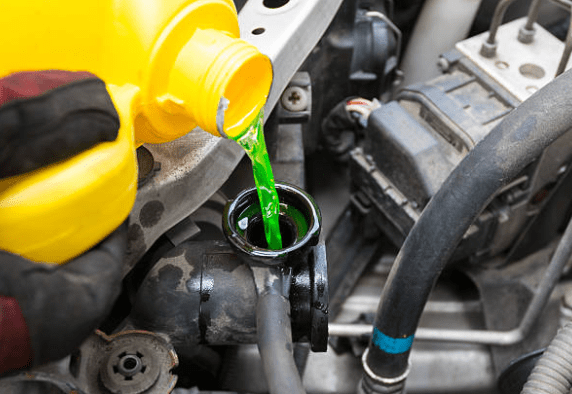
Antifreeze, often called coolant, is a yellowish-green liquid lubricant for moving parts in a machine, such as a water pump. Coolant prevents the water in a radiator and engine from freezing in cold temperatures and boiling over in hot temperatures. Most antifreeze contains the compound ethylene glycol; ethylene glycol, when ingested, may cause heart and kidney failure. So, what do you do with antifreeze waste?
Is Waste Antifreeze Regulated?
While there are no federal regulations for managing and disposing of ethylene glycol-based antifreeze, that does not mean it is not hazardous. Antifreeze is not considered a “solid waste” according to the EPA (United States Environmental Protection Agency) and, therefore, is not regulated or considered a “hazardous waste.” However, some states have specific regulations for antifreeze disposal based solely on its toxicity. For example, Vermont regulates ethylene glycol in solutions exceeding 700 parts per million.
How Do You Dispose of Antifreeze?
Recycling of antifreeze is always the first recommendation for generators of waste. Antifreeze must be disposed of properly if that is not possible. According to the EPA, used antifreeze “may not be dumped with regular trash, poured into the sewer or poured onto the ground.” Instead, the material must be disposed of at a secure chemical landfill or a landfill designated for used antifreeze disposal.
Where Is There an Antifreeze Landfill?
In most cases, the general public cannot access a landfill where antifreeze is accepted. Instead, generators typically ship their used, unrecyclable antifreeze with a licensed hazardous waste disposal company. Hazardous waste haulers generally have access to disposal facilities that dispose of chemical solutions unsuitable for the standard residual waste.
Do You Have Used Antifreeze to Dispose of?
Maine Labpack, Inc. is a licensed hazardous waste disposal company with access to various disposal outlets, including those that accept used antifreeze.
Have antifreeze to dispose of? Contact us today to learn more about disposal options.
